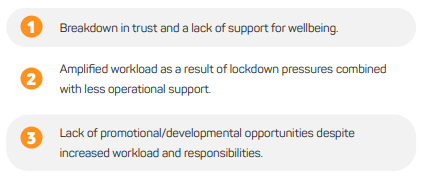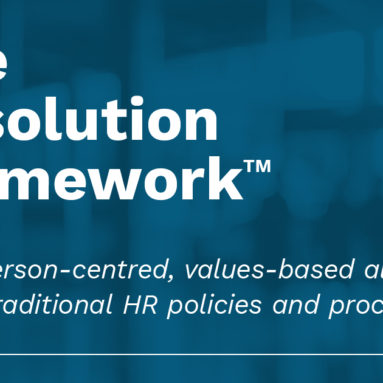
Download this case study


Read more case studies:
Conducting A Neutral Evaluation
Introduction
London Legacy Development Corporation (LLDC) chose to conduct a neutral evaluation to further understand the employee culture and consider future learning points. Neutral evaluations are chosen by organisations when they wish to carry out an independent examination, often for complex workplace issues such as multiple and counter grievances, collective disputes, team conflict or allegations of bullying, harassment, or discrimination. This service explores issues through extensive evidence gathering and proposes an appropriate route to resolution, allowing organisations to outsource the often-contentious nature of decision making.
Targeting issues
The neutral evaluation assessor was entrusted to evaluate the following concerns:

The assessor made clear the understanding that these complaints were personal perceptions, meaning that an empathic approach must be undertaken so as not to discount individual# perspectives. In order to fulfil the evaluation effectively and thoroughly, documents were supplied to the assessor which helped to illustrate LLDC’s workplace culture and support given during the pandemic. Policies surrounding Bullying and Harassment, Sickness Absence, People Strategy, Appraisal and Performance, and Code of Conduct were integral to the evaluation process.
Making resolutions
The investigator held interviews with all parties. The emotions of all parties, following email correspondence, were validated, and taken into consideration. All parties were upset and affected by the circumstances of the grievance. Emails and messages were supplied to the assessor in order to gain a wider evidence-based evaluation of the case at hand. Based on this evidence, the assessor recommended that it should be internally acknowledged that the workload was high, but attempts were made to de-prioritise and support the party in question.
Upon resolution, the following recommendations were made:

Looking forward
Moving ahead, the assessor suggests using stress risk assessments when staff are signed off due to mental health with clear, extensive support from Occupational Health. This would help to prevent future grievances and threats to employee wellbeing. The assessor also proposed the benefit of a team facilitation to ensure that everyone is aware of support mechanisms.











